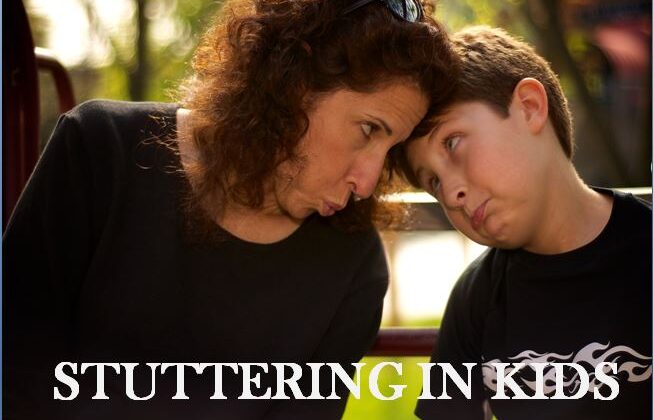
As young children develop their verbal skills, it’s not uncommon for them to stutter.
We’ve probably all known someone who stuttered, or maybe we have ourselves.
In fact, nearly 3 million people in the United States stutter, and approximately 5% of all children experience a period of stuttering for six months or longer.
As a parent, it can be discomforting to watch your child struggle to communicate. It naturally will also raise many questions: “Is this a normal part of their development?” “Will they grow out of it?” “Should I seek treatment?”
For most toddlers and preschoolers, stuttering naturally and gradually stops over a short period of time. However, if children continue to stutter by the time they reach school, they may have a more serious problem that could persist into adulthood.
Like most speech and language issues, the earlier you seek treatment, the better your child’s outcomes will be. I’ve listed a few proactive tips and strategies below that parent can use to help their child speak more fluently. But let’s start with some basics.
What is a Stutter?
Stuttering is a communication disorder that disrupts the flow of speech. Oftentimes, children know exactly what they want to say, but have trouble producing the right sounds. While every child is different, and the symptoms can vary dramatically, here are some common signs to look for:
- Repeating sounds, syllables, or words (l-l-l-l-like this)
- Prolonging certain sounds (lllllllike this)
- Sudden stoppages or interruptions in speech (their mouth may open but no words are audible)
- Routinely using interjections when speaking (such as “um” or “like”)
For many children, the impact stuttering has on their daily life can be worse than the condition itself. They may feel shy or embarrassed, experience anxiety when publicly speaking, or be afraid that they’ll be teased.
You may also want to read:
How Can you Help Your Child
Here are some best practices parents can use to take an active role in helping their children:
1. Seek Professional Help
If you are worried about your child’s speech, it’s important to contact a speech-language pathologist (SLP). They are the most qualified professional to help evaluate, diagnose, and treat your child. Many SLPs specialize in stuttering and fluency disorders, so make sure that your therapist meets your child’s needs.
2. Model Easy Speech
For young kids who don’t yet seem to show awareness of their own stuttering, we want to support them in an indirect way that doesn’t necessarily draw attention to the stutter itself. Modeling “easy speech” is a technique where parents can use easy, relaxed speech during everyday communication with their children. You want to stretch and smooth out words and speak at a slow pace. It can take some time to get used to, but oftentimes your child’s speech will start to imitate yours if you stay consistent.
3. Positive Reinforcement
It may feel like a natural instinct to immediately correct a child when they stutter or react negatively. It’s important to try and avoid these reactions. Instead, we should be praising and celebrating them when they speak correctly.
4. Remove Conversational and Time Pressure
Similar to the above, try to reduce pressures when speaking with your child that stutters. One strategy is to make more comments or observations rather than posing direct questions. Instead of “What is the bear doing on this page?” try “I see the bear eating honey!”
5. Conversational Turn-Taking
It can be tough for your child to get a word in when everyone else has something to say, especially if they have siblings. Take opportunities to insist upon conversational turn-taking. The dinner place is a great place to try this out. Everyone gets a few minutes to describe their day or comment on what they learned in school. When your child that stutters begins to talk, make sure your attention is focused on them.
6. Let Your Child Finish
If your child is struggling to pronounce a word or sentence, try not to finish it for them. Instead, give your child enough time to finish their thoughts without filling in the blanks. Additionally, you may be saying phrases like “take a breath” or “take it slow” with the best intentions, but these phrases can make children more self-conscious.
7. Educate Yourself on Stuttering
The more you know about stuttering, the more informed decisions you’ll be able to make regarding your child’s treatment. While speaking with a speech-language pathologist is a great place to start, make sure to do your own research, and seek guidance.
Hope these points will be of help to parents to get their child over stuttering. I’ve also created an instructional YouTube series with several videos about stuttering, as well as an informational guide to help answer many of your questions about stuttering.
Leave a Reply